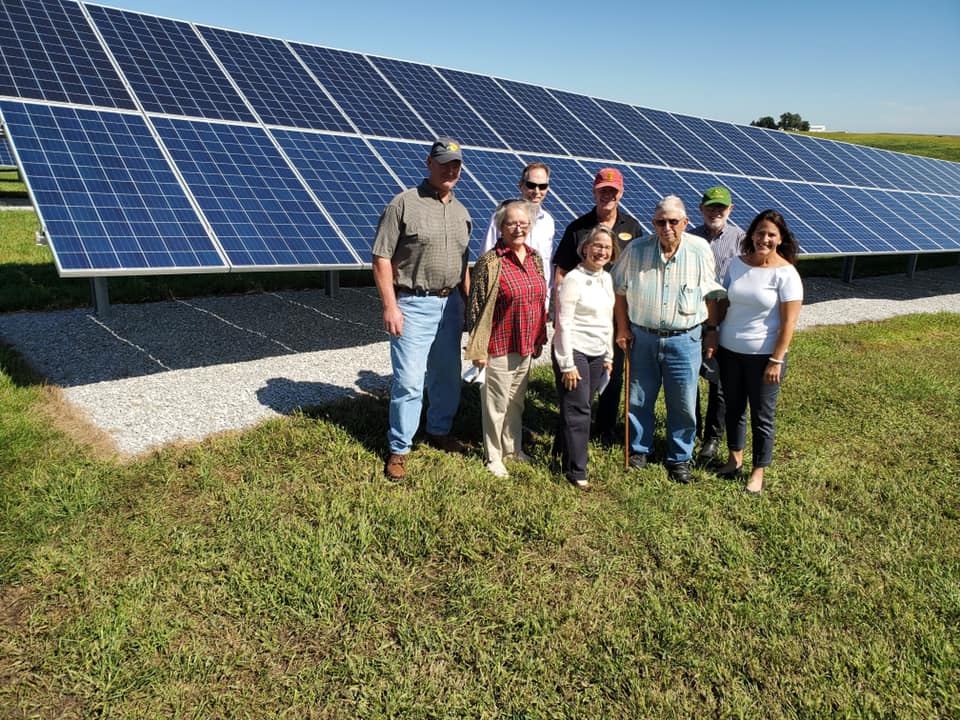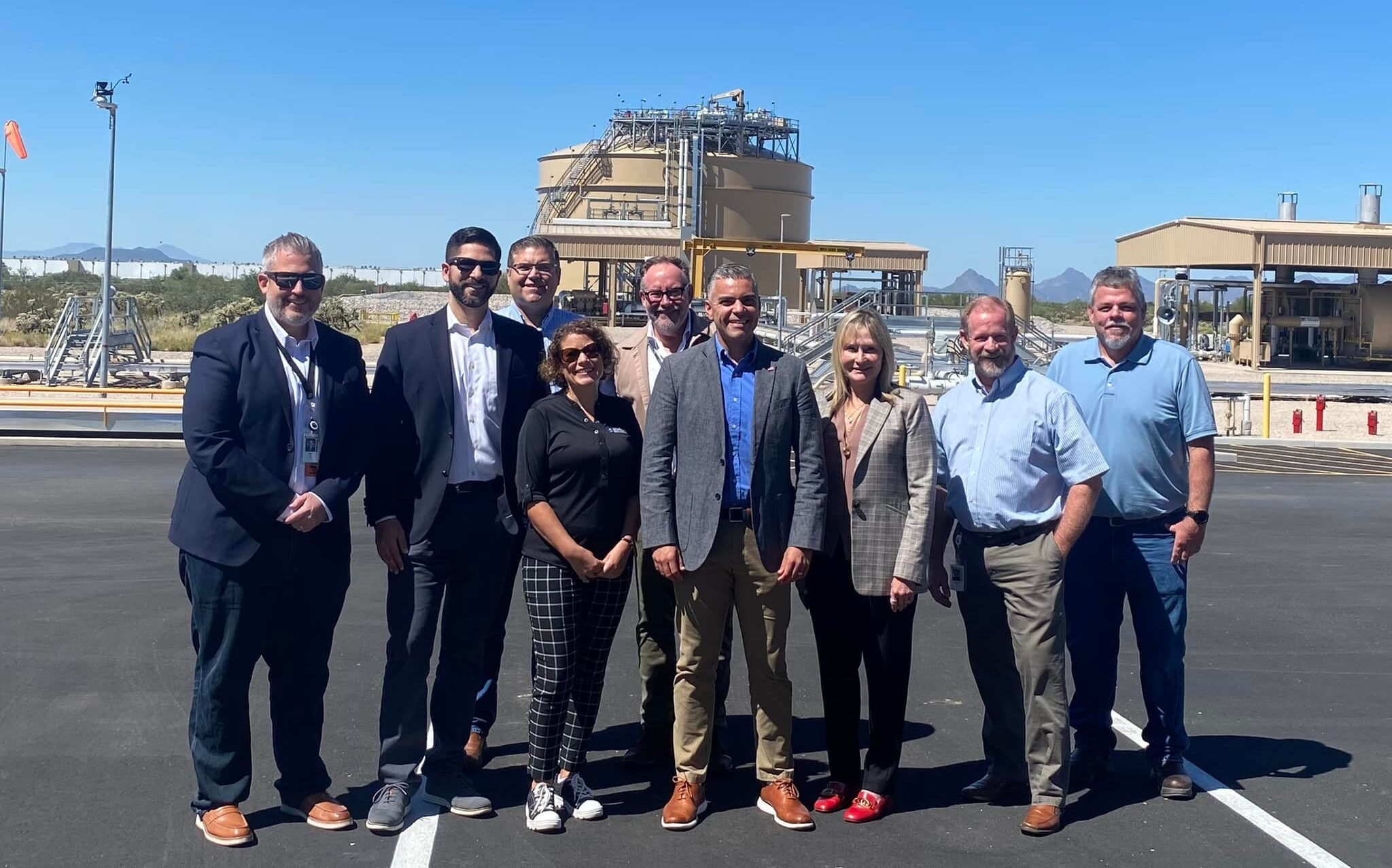Many House Republicans have spoken up this month to defend critical clean energy tax credits as they prepare to vote on their party’s mega reconciliation bill. Legislators have proposed securing $3.8 trillion in tax cuts, many of which the Trump administration initially passed in 2017. Some proposed changes include scaling back tax credits for many renewables, including geothermal, solar, nuclear, and wind; tax breaks for American factories making clean energy components like batteries; and rebates for purchasing electric vehicles.
Across the House and the Senate, however, the Republican bloc cannot afford to lose more than three votes from their party on the package. A cohort of dozens of clean energy-friendly conservative representatives, therefore, poses a significant effort to secure incentives that have resulted in over $843 billion in domestic investment announcements since 2022.
On May 8, twelve House Republicans sent a letter to Ways and Means Chair Jason Smith (R-MO-08) ahead of a markup of the reconciliation bill scheduled for the following week. The signatories included:
- U.S. Representative Juan Ciscomani (R-AZ-06)
- U.S. Representative Vince Fong (R-CA-20)
- U.S. Representative David Valadao (R-CA-22)
- U.S. Representative Jeff Hurd (R-CO-03)
- U.S. Representative Gabe Evans (R-CO-08)
- U.S. Representative Mariannette Miller-Meeks (R-IA-01)
- U.S. Representative Ashley Hinson (R-IA-02)
- U.S. Representative Zach Nunn (R-IA-03)
- U.S. Representative Don Bacon (R-NE-02)
- U.S. Representative Mark Amodei (R-NV-02)
- U.S. Representative Rob Bresnahan (R-PA-08)
- U.S. Representative Jen Kiggans (R-VA-02)
In the letter, shared exclusively with POLITICO, the representatives urged the continuation of the section 48E Investment Tax Credit (ITC) and section 45Y Production Tax Credit (PTC). They wrote, “These provisions play a vital role in advancing American energy independence, spurring domestic manufacturing, reducing electricity costs for families and businesses, and strengthening U.S. competitiveness at a time of significant electricity demand growth.” They also advocated for “renewables like wind and solar to firm resources like nuclear and hydropower to cutting-edge storage technologies.”
The representatives quantified the impact that these incentives have had domestically. “For companies making long-term, capital-intensive investments in energy infrastructure, the market certainty provided by the ITC and PTC is absolutely essential,” they noted. Due to the ITC and PTC, they added, “power companies projected committing approximately $200 billion to critical grid modernization and expansion initiatives in 2023 alone.”
They also highlighted the significant impact of the incentives for American households. They stated that these credits are estimated to secure $45 billion in savings for taxpayers through 2031. Repealing them, however, would “result in a 10 percent increase in electricity costs for consumers by 2026.”
Overall, the legislators presented the case that the tax credits contribute to affordable power, energy independence, domestic manufacturing, and job creation, all of which they classified as “core Republican principles.”

Photo Courtesy Mariannette Miller-Meeks
On May 14, another assortment of 14 House Republicans, featuring many of the same names, issued a joint statement in response to the version of the bill advanced by the Ways and Means Committee, which would phase out credits by 2032. The legislators expressed, “While many of these provisions reflect a commitment to American energy dominance through an all-of-the-above energy strategy, we must ensure certainty for current and future energy investments to meet the nation’s growing power demand and protect our constituents from higher energy costs.” The signatories included:
- U.S. Representative Juan Ciscomani (R-AZ-06)
- U.S. Representative David Valadao (R-CA-22)
- U.S. Representative Young Kim (R-CA-40)
- U.S. Representative Jeff Hurd (R-CO-03)
- U.S. Representative Gabe Evans (R-CO-08)
- U.S. Representative Don Bacon (R-NE-02)
- U.S. Representative Mark Amodei (R-NV-02)
- U.S. Representative Nick LaLota (R-NY-01)
- U.S. Representative Andrew Garbarino (R-NY-02)
- U.S. Representative Mike Lawler (R-NY-17)
- U.S. Representative Dave Joyce (R-OH-14)
- U.S. Representative Rob Bresnahan (R-PA-08)
- U.S. Representative Jen Kiggans (R-VA-02)
- U.S. Representative Dan Newhouse (R-WA-04)
While they acknowledged that the text included some “reasonable phase-out schedules for certain clean energy tax credits,” the signatories suggested three changes to the bill. They first noted that the Foreign Entity of Concern provisions, which are meant to prevent companies in China, for example, from benefiting from the incentives, “risk undermining U.S. competitiveness… by restricting domestic energy production.”
Second, they argue that access to the credits should be available at the launch of construction instead of when the project is placed in service and begins producing energy to ensure announced projects can be built before any phaseout. This change is “essential to supporting the energy development needed to meet the growing power demand and protect thousands of high-quality American jobs in communities across the country, they stated. Diego Espinosa, a senior research analyst at Wood Mackenzie, explained that “the shift in terminology from ‘start of construction’ to ‘placed in service’ is expected to tighten project pipelines, thereby increasing financial risk and uncertainty.”
Finally, the representatives claimed that the transferability of the tax credits must be maintained for the complete phase-out timeline instead of only two years, thereby allowing businesses to buy and sell credits for longer and giving them “the flexibility necessary to make long-term investments in American energy.” Cutting the timeline on transferability “alone could be the kiss of death for these projects. It would be pretty devastating for the manufacturing renaissance we are seeing,” said Jesse Jenkins, an assistant professor at Princeton University.
The legislators concluded, “We appreciate the Ways and Means Committee putting America first by investing in American energy dominance, but the last thing any of us want is to provoke an energy crisis or cause higher energy bills for working families. We urge the Committee to consider these important changes in this critical part of our One Big Beautiful Bill.”

Photo Courtesy Congressman David G. Valadao
After the House Budget Committee blocked the megabill from coming to the floor on Friday, May 16, it finally approved the bill on Sunday by a vote of 17-16. The House Rules Committee is expected to take up the bill on Wednesday morning. The House Republicans’ concerns for the future of the energy tax credits will surely be front and center among the discussions. As Gilbert Campbell, founder and CEO of Volt Energy Utility, discussed, “Frankly, if it does pass as is, from a private investment standpoint, a lot of projects will not get built. And that’s going to lead to rising electricity rates.”





